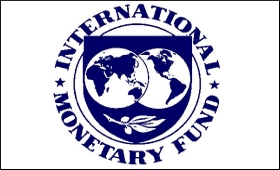|

|
IMF executive board approves new three-year PSI
|
|

|
|
| Top Stories |
 |
|
|
|
PR Newswire | 15 Jun, 2010
MAPUTO (Mozambique): The Executive Board of the International Monetary Fund (IMF) today completed the sixth and final review of Mozambique's economic performance under the Policy Support Instrument (PSI) and approved a new three-year PSI.
The Board also completed the second review of Mozambique's performance under the Exogenous Shocks Facility (ESF), which will enable the third and final disbursement of SDR 14.2 million (about US$21 million). The one-year, SDR 113.6 million (about US$176 Million) ESF arrangement was approved on June 30, 2009 (see Press Release No. 09/247).
In completing the reviews, the Executive Board granted a waiver for the nonobservance of the end-December 2009 assessment criterion on the ceiling on reserve money.
The new PSI for Mozambique aims at accelerating economic development and reducing poverty while maintaining macroeconomic stability. The authorities aim to meet their development needs through a significant stepping up of public investment in infrastructure, which would necessitate broadening the financing options to also include nonconcessional borrowing.
The IMF's framework for PSIs is designed for low-income countries that may not need, or want, IMF financial assistance, but still seek IMF advice, monitoring, and endorsement of their policies. (see Public Information Notice No. 05/145). The previous PSI for Mozambique was approved by the Executive Board on June 18, 2007 (See Press Release No. 07/135).
Following the Executive Board's discussion on Mozambique, Mr. Murilo Portugal, Deputy Managing Director and Acting Chair, stated:
“Mozambique's macroeconomic performance in 2009 was resilient to the global economic crisis. Economic growth was stronger than envisaged and inflation remained low. The authorities' strong track record of prudent policy implementation provided the necessary room for policy easing, which helped mitigate the impact of the crisis. With the improved economic outlook, the authorities plan to start unwinding the policy easing in 2010. Significant headway was made in implementing key structural reforms, especially measures related to public financial management, tax policy and administration, the monetary policy framework, and financial sector supervision.
“Policies under the successor PSI will focus on enhancing economic growth to help Mozambique meet its development objectives while safeguarding macroeconomic stability. Embedded in a prudent fiscal and monetary policy stance, the PSI will support a sizeable increase in public sector investment, which will focus on, among others, the energy and transportation sectors, partially financed by nonconcessional external borrowing. Together with measures to improve the business environment, this is expected to help remove identified bottlenecks, so that the private sector can develop and play its intended role as an engine of growth.
“The structural reform program emphasizes the need to make prudent and effective public investment and borrowing decisions. To this end, it focuses on strengthening the framework for investment planning and formulating and implementing a comprehensive debt strategy. The structural reform agenda will also continue to place emphasis on measures to strengthen public financial management, tax policy and administration, and the Bank of Mozambique's liquidity forecasting and management,� Mr. Portugal added.
ANNEX
Recent Economic Developments
Mozambique showed considerable resilience to the global crisis. Real GDP grew by 6â…“ percent in 2009, more than expected, owing to stronger performance of the construction, energy, and financial sectors. Large declines occurred in export receipts and private capital inflows, but the impact on external reserves was mitigated by the SDR allocation and by resources provided by the IMF through the Exogenous Shocks Facility.
As the global economy recovers, the economic outlook is expected to become more favorable. Real GDP growth should increase to 6½ percent in 2010 and 7¾ percent by 2013, largely because of new megaprojects in the natural resource sector, stepped-up public investment, and larger private sector participation. Continued prudent macroeconomic policies should keep inflation at around 6 percent on average over the medium-term, with a temporary spike in 2010 to above 9 percent following the gradual removal of the fuel subsidy. The government's investment plans should not fundamentally burden the external current account deficit and reserve levels. The current account deficit (after grants) and international reserves are expected to hover around 13 percent of GDP and above five months of imports over the next three years.
Program Summary
Mozambique's PSI aims at creating an environment conducive to strong growth, which is expected to also help ensure that more and more segments of the population will benefit from economic development. It envisages a limited expansion of nonconcessional external borrowing and domestic financing to boost infrastructure investment while maintaining a prudent fiscal policy stance that would keep the primary domestic deficit broadly unchanged. Monetary policy will be sufficiently tight to keep domestic demand pressures in check while providing ample room for private sector credit expansion.
Structural reforms will focus on improving the authorities' capacity for informed decision making, by promoting debt management, developing a borrowing strategy, and improving investment planning. It will also be important to continue the ongoing reforms with respect to public financial management, tax policy and administration, the monetary policy framework, and financial sector supervision.
The authorities' program will support an updated Poverty Reduction Strategy, which will be drafted involving with the private sector, civil society, and development partners, and finalized in the second half of 2010.
|
|
|
| |
|
|
|
|
|
|
|
|
|
|
|
|
|
|
| |
| Customs Exchange Rates |
| Currency |
Import |
Export |
US Dollar
|
84.35
|
82.60 |
UK Pound
|
106.35
|
102.90 |
Euro
|
92.50
|
89.35 |
| Japanese
Yen |
55.05 |
53.40 |
| As on 12 Oct, 2024 |
|
|
|
|
|
|
|
| Commented Stories |
 |
|
|
|
|
|
| |
|